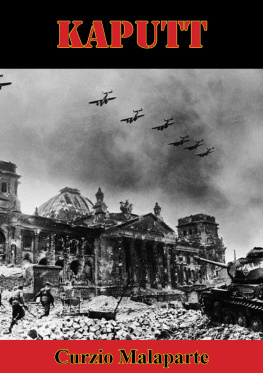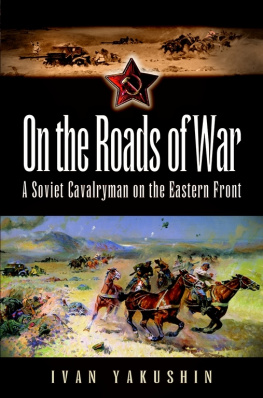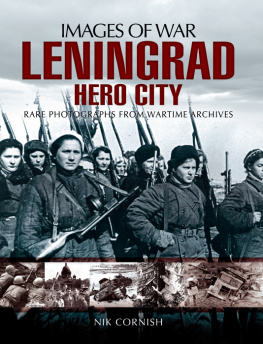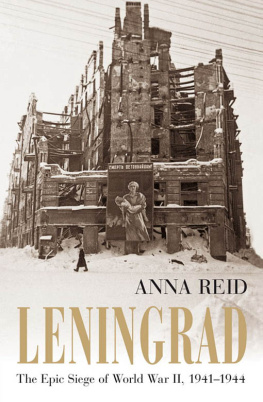KAPUTT
CURZIO MALAPARTE
Translated from the Italian by
CESARE FOLIGNO
Afterword by
DAN HOFSTADTER
Copyright by Comunione Eredi Curzio Malaparte, Italy Afterword copyright 2005 by Dan Hofstadter All rights reserved.
Malaparte, Curzio, 1898-1957.
World War, 1939-1945 Personal narratives, Italian.
World War, 1939-1945Europe, Eastern.
War correspondentsItalyBiography
CONTENTS
The History of a Manuscript
T HE MANUSCRIPT of Kaputt has a tale of its own, and it seems to me that the secret history of the manuscript is the most appropriate preface for the book. I began Kaputt in the summer of 1941at the beginning of the German war against Russiain the village of Pestchanka in the Ukraine, in the home of a Russian peasant, Roman Suchena. Every morning I sat in the garden under an acacia tree and worked while Suchena, squatting on the ground by the pig sty, sharpened his scythe or chopped beets and cabbages for the pigs. The garden adjoined the House of the Soviets which was occupied at this time by a detachment of Hitler's SS men. Whenever an SS trooper came near the hedge, Suchena gave a warning cough.
The thatched-roof hut with its mud and straw walls plastered with ox dung was small and clean-, its only luxuries were a radio, a gramophone and a small library of the complete works of Pushkin and Gogol. This was the home of an old peasant whom three five-year plans and collective farming had freed from the bonds of misery, ignorance and filth. The son of Roman Suchena, a Communist party member, had been a mechanic on the Voroshilov Collective Farm in Pestchanka. He and his wife had worked on the same collective and had followed the Soviet Army with their tractor. She was a silent and gentle girl-, in the evenings, when work in the small field and in the garden was done, she sat under a tree and read Pushkin's Eugene Onegin from the special State edition published in Kharkov on the centenary of the great poet's death. She reminded me of Croce's two oldest daughters, Elena and Aida, who used to sit under a heavily laden apple tree in the garden of their summer home in Meana and read Herodotus in the original.
When I had to visit the front, only a couple of miles from Pestchanka, I entrusted the manuscript of Kaputt to my friend Roman Suchena who hid it in a hole in the wall of the pig sty When the Gestapo came at last to arrest and expel me from the Ukraine because of the sensation caused by my war dispatches in the Corriere della Sera, Suchena's daughter-in-law sewed the manuscript into the lining of my uniform. I will always be grateful to Suchena and his young daughter-in-law for helping me to save my dangerous manuscript from the hands of the Gestapo.
I resumed work on Kaputt during my stay in Poland and while on the Smolensk front, in January and February of 1942. When I left Poland for Finland, I carried the pages of the manuscript hidden in the lining of my sheepskin coat. I finished the book, except for the last chapter, during the two years spent in Finland. In the fall of 1942 I returned to Italy on sick leave after a serious illness I had contracted on the Petsamo front in Lapland. At the Templehof Air Field, near Berlin, all passengers were searched by the Gestapo. Fortunately I had not a single page of Kaputt on me. Before leaving Finland I had divided the manuscript into three parts-, I gave one part to the Spanish Minister in Helsinki, Count Augustin de Fox, who was leaving his post to return to the Foreign Ministry in Madrid-, I gave another part to the Secretary of the Romanian Legation in Helsinki, Prince Dinu Cantemir, who was leaving to assume a new post with the Romanian Legation in Lisbon; and I gave the third part to the press attach of the Romanian Legation in the Finnish capital, Titu Michailescu, who was returning to Bucharest. After a long Odyssey the three parts of the manuscript finally reached Italy, where I hid them in the wall surrounding the woods of my house on Capri, facing the Faraglioni reefs.
My friends de Fox, Cantemir and Michailescu know how deeply I am indebted to them. Some day I hope to return to Berlin to thank my German friends whose names I still dare not mention, for preserving for several months, at the gravest risk to themselves, the chapters of Kaputt that I wrote in Berlin.
In 1943 I was in Finland and, as soon as I heard the news of Mussolini's fall, I flew back to Italy with the manuscript of the final chapters concealed in the double soles of my shoes. Two days after my arrival in Rome, on July 31, I was arrested because I had publicly declared that the German offensive against Italy was imminent and had blamed Badoglio for not taking active steps to meet the danger.
I was not even given time to change my shoes, but was sent just as I was, to the prison of Regina Coeli, with which I had become so familiar during the preceding years. The happy fact that I and my manuscript were released from prison is due to the quick intervention of Ambassador Rocco, then Minister of Popular Culture and later Ambassador at Ankara, of General Castellano who met with the Allies to discuss Armistice terms, of Minister Pietromarchi, and of Counselor of the Legation Rulli, then chief of the foreign press section. Once out of prison, I left Rome and sought refuge on Capri where I awaited the arrival of the Allies and where in September, 1943, I finished the last chapter of Kaputt.
Kaputt is a horribly gay and gruesome book. Its gruesome gaiety is the most extraordinary spectacle that I have witnessed in the debacle of Europe in the war years. Among the characters in this book War is of secondary importance. I am tempted to say that it serves only as a pretext, but pretexts inevitably belong to the sphere of Destiny. So in Kaputt, War is Destiny. It does not appear on the scene in any other way. War is not so much a protagonist as a spectator, in the same sense that a landscape is a spectator. War is the objective landscape of this book. The chief character is Kaputt, the gay and gruesome monster. Nothing can convey better than this hard, mysterious German word Kaputt which literally means, "broken, finished, gone to pieces, gone to ruin, " the sense of what we are, of what Europe isa pile of rubble. But I prefer this Kaputt Europe to the Europe of yesterday and of twenty or thirty years ago. I prefer starting anew, rather than accepting everything as if it were an immutable heritage. Let us hope that the new era will really be new and that writers will enjoy liberty and respect, because Italian literature needs respect as much as it needs liberty I say "let us hope " not because I lack faith in liberty and its benefitsI belong to that group of people who have suffered imprisonment and deportation to the Island of Lipari for their freedom of spirit and their contribution to the cause of libertybut because we all know how difficult it is in Italy and throughout large sections of Europe to be a human being, and how dangerous it is to be a writer.
May the new era be an era of liberty and respect for everyone including writers! Only through liberty and respect for culture can Europe be saved from the cruel days of which Montesquieu spoke in the Esprit des lois: "Thus, in the days of fables, after the floods and deluges, there came forth from the soil armed men who exterminated each other." B OOK XXXII, C HAPTER XXIII.
& MDASH ; CURZIO MALAPARTE
PART ONE
The Horses
I. Du ct de Guermantes
P RINCE Eugene of Sweden stopped in the middle of the room. "Listen," he said.
A sad, yearning wail was swept with the wind through the oaks of Oakhill, the pines of Valdemarsudden Park, from beyond the inlet of the sea stretching as far as Nybroplan, in the heart of Stockholm. It was not the nostalgic sound of the ships' sirens rising from the sea to the harbor, nor the raucous cry of the seagulls,- it was a feminine voice, doleful and distracted.
Next page






